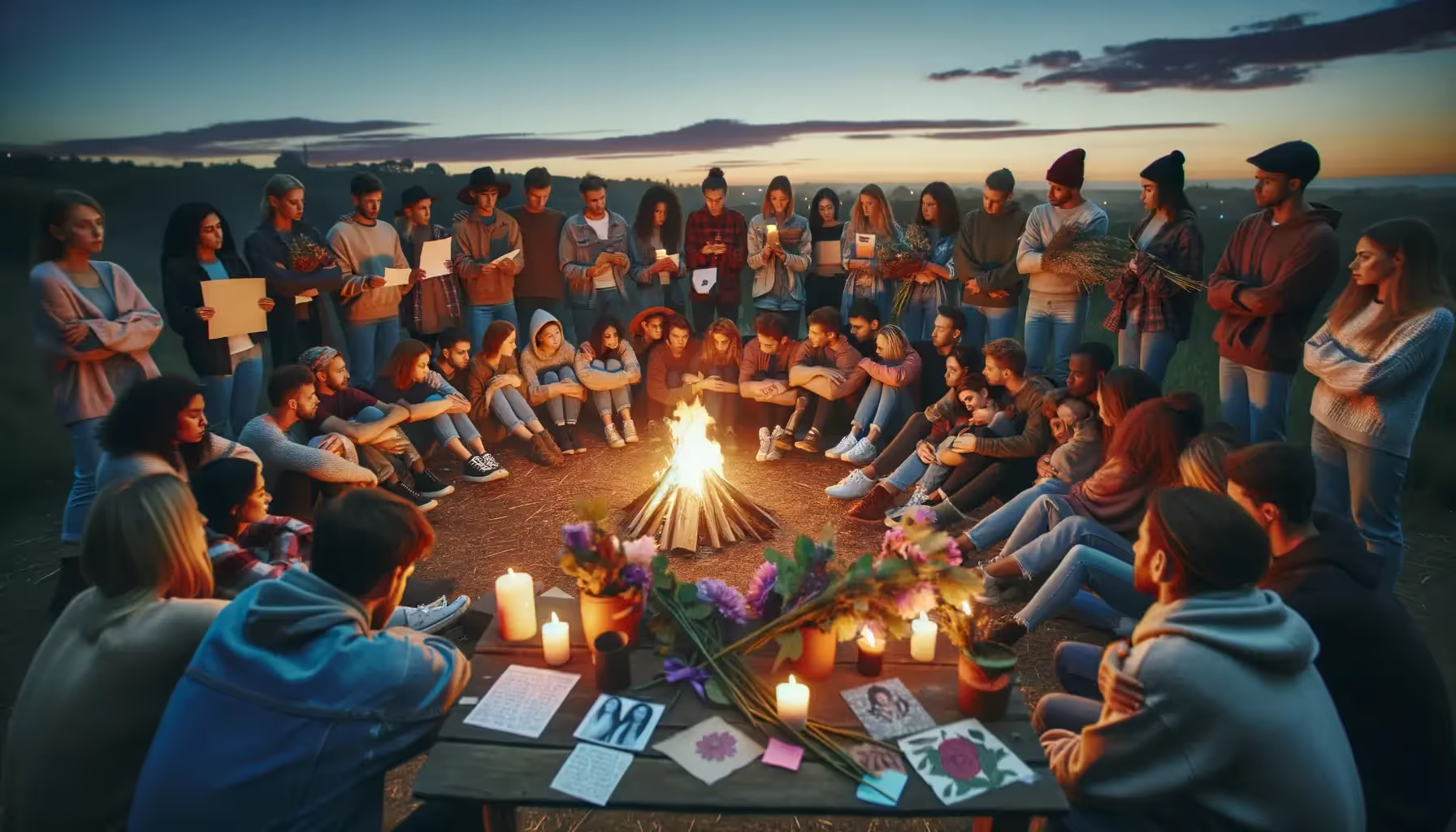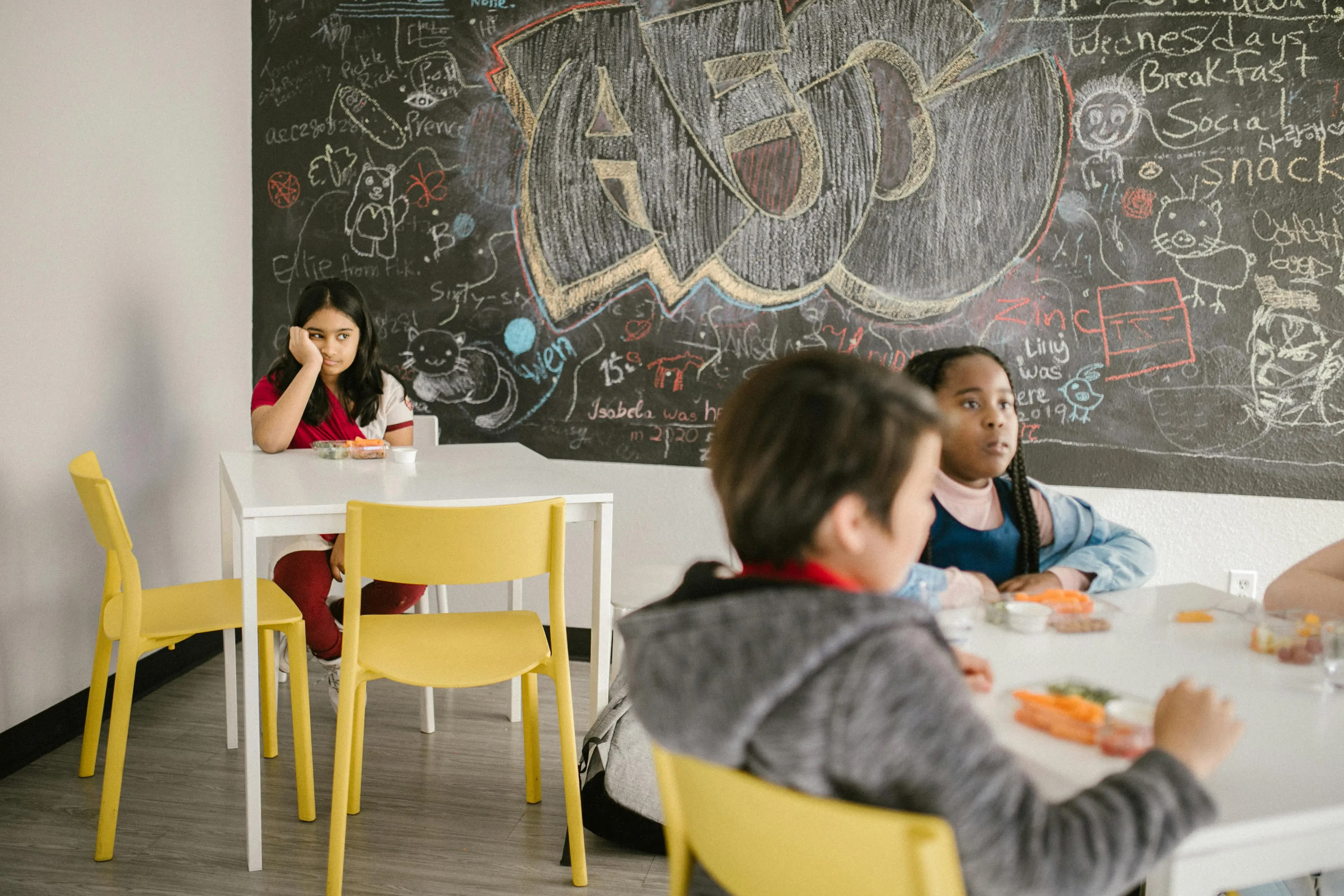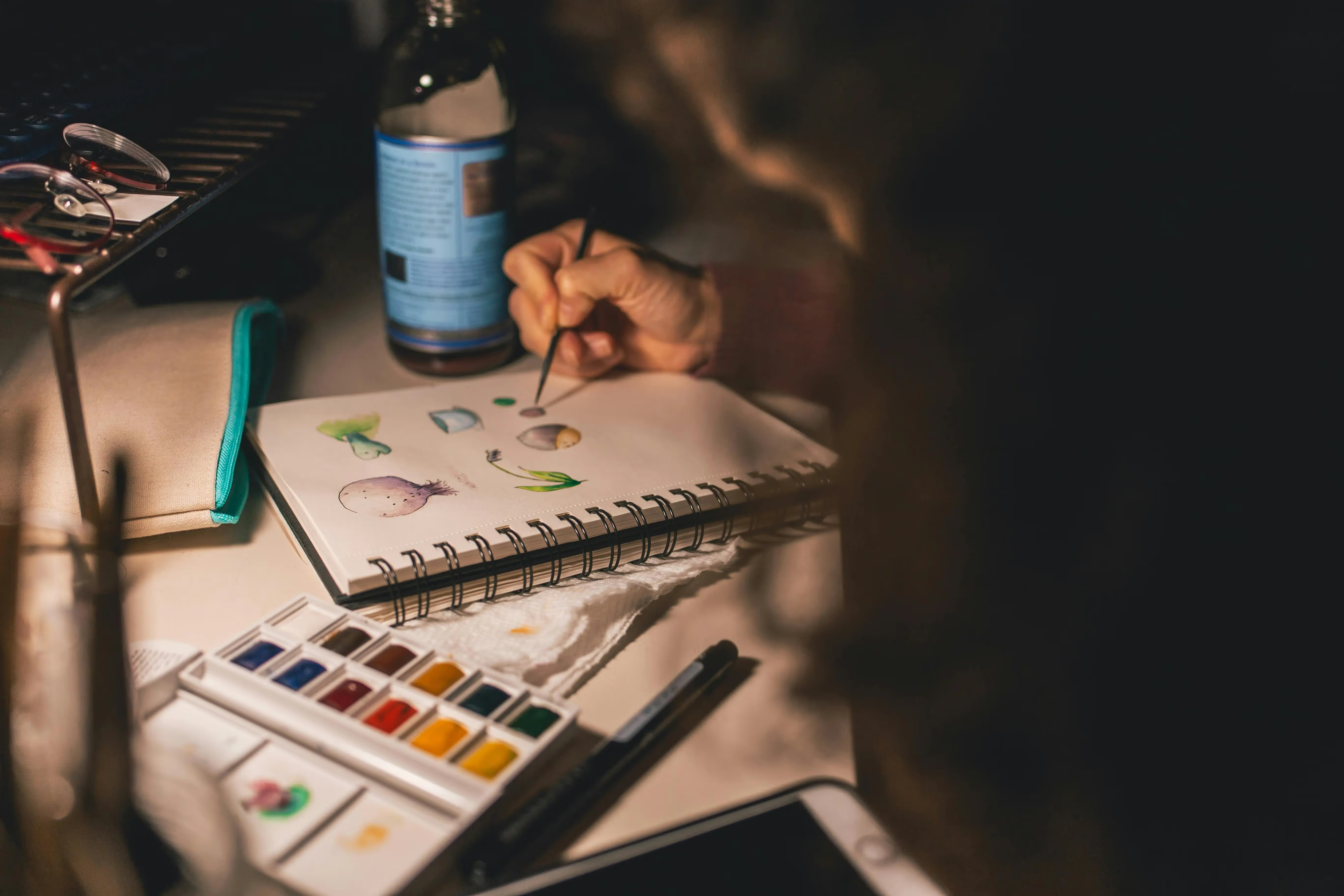Grief is a natural part of the human experience that we all must face. When we lose a loved one, end a relationship, or experience trauma, grief arises. But grief also extends beyond personal loss to encompass sorrows in the wider world, like climate change and social injustice. Engaging with grief through community rituals can lead to deep healing, connection, and growth.

What is Grief?
Grief is more than just sadness or depression. It is a profound emotional response to loss that can arise in many forms - anger, tears, silence, and more. As therapist and grief facilitator Peter Jabin explains on the Relational Psych podcast, grief can act like a "wild animal" that moves into our home, with its own rhythms and moods. It is something we learn to live with, not something we can fully control or "process" and be done with.
Grief is also deeply tied to our capacity for love. We grieve that which we loved and lost. So grief is in many ways the flip side of love itself. The first "gate" of grief is the loss of loved ones and dreams. But there are other gates too. The second gate involves grief for the parts of ourselves that were shamed or went unloved. The third encompasses grief for the injustices and destruction in the wider world. The fourth, grief for the connection and village life humans once knew but lost. The fifth, ancestral grief passed down through generations.
Why We Need Ritual to Deal with Grief
In the past, grief was handled communally through intricate rituals. But today grief has become private and lonely, relegated to a few bereavement days off work. Psychotherapy helps process cognitive aspects of grief but is not enough for full healing. We need practices that engage our bodies, emotions, and spirits. This is where communal ritual comes in.
Ritual practices span drumming, chanting, shared meals, movement, and more. The rituals provide coherence, creating a "sudden village" even among strangers. This temporary community bears witness to each person's unique expression of grief in a safe space.
Peter explains that the purpose of ritual is to "become transparent to the transcendent and repair the tears in belonging." Ritual opens portals to connect with energies and realms beyond the everyday. This is grief as a spiritual encounter.
Why Should You Engage with Grief?
A common myth holds that plunging into grief will lead to being permanently overwhelmed and lost. But the reality is that avoiding grief causes it to build up destructively over time. Grieving is not a linear path, but it does allow us to metabolize loss and gain resilience. Being unable to grieve is a form of brittleness that actually makes one less able to withstand life's waves.
Peter points out that with climate catastrophe, mass extinction, and societal unraveling underway, humanity is facing a tsunami of grief. Those who develop the capacity to grieve will be the ones left standing. A willingness to engage loss through ritual and community enables survival - and more than mere survival, the chance to retain humanity and reconnect to meaning.
Grieving is not self-pity or collapse. It is not a private curse but a sacred offering. Moving through grief communally develops empathy and liberates us from pettiness into compassion. It returns us to belonging.
How to Get Started with Communal Grieving
If you feel called to connect with grief more deeply, here are some initial steps:
- Read up on grief to understand it more fully. Books like The Wild Edge of Sorrow by Francis Weller are a good start.
- Find a grief companion willing to listen without judgement or problem-solving as you share your grief. Do this in turn for them.
- Find a grief companion willing to listen without judgement or problem-solving as you share your grief. Do this in turn for them.
- Look for grief rituals in your area to join. Temporary immersion into ritual community can be hugely cathartic.
- Begin a small daily ritual like meditating, singing, dancing, or lighting a candle in remembrance of what you have lost.
The Fullness of Grief
Grieving is not easy. It brings us face to face with mortality, impermanence, and the knowledge that we cannot control everything. But embracing grief connects us to the fullness of what it means to be human. Through compassion and courage, we can help each other walk into the rising sea of griefs. And on the other side, we may just find the village we have been longing for all along.
Frequently Asked Questions About Communal Grieving
Is grief really necessary? Can't I just move on?
Grief is a natural and inevitable response to loss. Avoiding grief may seem easier in the moment, but unprocessed grief often resurfaces later as depression, addiction, rage, or self-harm. Grieving is needed to fully metabolize loss and prevent future suffering.
Do I need a recent loss to participate in grief rituals?
No, you do not need to have experienced a recent major loss. We all carry grief that we may not even be consciously aware of. Grief rituals can bring this to the surface to be expressed and healed.
What if I'm overwhelmed by emotions during a ritual?
Rituals are held in a supportive, non-judgmental space. If emotions feel too intense, you can step away and return when ready. No one will force you to do more than you can handle.
Is grief a sign of mental illness or weakness?
On the contrary, the ability to grieve is a sign of strength and resilience. Suppressing grief can lead to unhealthy repression and detachment. Grieving is courageous.
How do I know if a grief ritual is right for me?
Tuning into your intuition and body sensations can help discern if a ritual feels appropriate. Move toward rituals that seem nourishing and away from those that seem traumatic or exploitative. Check reviews.
What if my cultural background has different grieving practices?
Many communal grieving rituals incorporate diverse cultural elements. But you can also seek out rituals that align with your heritage and values if that feels more suitable.
References
O'Connor M. F. (2019). Grief: A Brief History of Research on How Body, Mind, and Brain Adapt. Psychosomatic medicine, 81(8), 731–738. https://doi.org/10.1097/PSY.0000000000000717
Cacciatore, J., Thieleman, K., Fretts, R., & Jackson, L. B. (2021). What is good grief support? Exploring the actors and actions in social support after traumatic grief. PloS one, 16(5), e0252324. https://doi.org/10.1371/journal.pone.0252324
American Psychological Association. (n.d.). Grief: Coping with the loss of your loved one. Retrieved October 27, 2023, from https://www.apa.org/topics/grief/tools
Dodds J. (2021). The psychology of climate anxiety. BJPsych bulletin, 45(4), 222–226. https://doi.org/10.1192/bjb.2021.18
Kavita, A. (2022, January 25). Grief rituals: The why and how of mourning. Utne. https://www.utne.com/mind-and-body/grief-rituals-ze0z1603zcbru/





